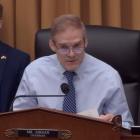Facebook CEO Mark Zuckerberg has openly denied working with President Donald Trump, in order to appease the liberal media.
Zuckerberg told co-founder Mike Allen that “There's no deal of any kind,” in statements made to Axios. He later called the speculation, which stemmed from hit pieces in The New York Times, “pretty ridiculous.” The billionaire spent much of July 16 and July 17 trying to vocally distance himself from the Trump administration, both to the public and his employees. No doubt this stems from the liberal boycott led by the Soros-funded Color of Change and Common Sense Media, led by Jim Steyer, brother of former Democratic presidential candidate and billionaire Tom Steyer.

It was that “rhetoric” that pushed Zuckerberg to announce on June 26 that the company would “take that content down” if it determined that “content may lead to violence or deprive people of their right to vote.”
Later, on July 17, Zuckerberg criticized the Trump administration in an interview with Dr. Anthony Fauci. He said, “[I]t’s really disappointing . . . that until recently, that parts of the administration were calling into question whether people should even follow basic best practices like wearing masks.” No word on whether or not Zuckerberg was also disappointed in Facebook partner the World Health Organization (WHO), which also questioned whether wearing masks was effective.
The Trump administration pushed back, saying that while Zuckerberg was “entitled to his position,” so were the “tens of millions of Trump supporters on Facebook."
The boycott that is currently trying to change the way Facebook works is composed of 1,000 companies, including Verizon, Coca-Cola, and Starbucks. Facebook went out of its way to meet with the boycott leaders on July 7. Shortly after this meeting, media outlets like Bloomberg reported that “Facebook Inc. is considering imposing a ban on political ads on its social network in the days leading up to the U.S. election in November, according to people familiar with the company’s thinking.”









